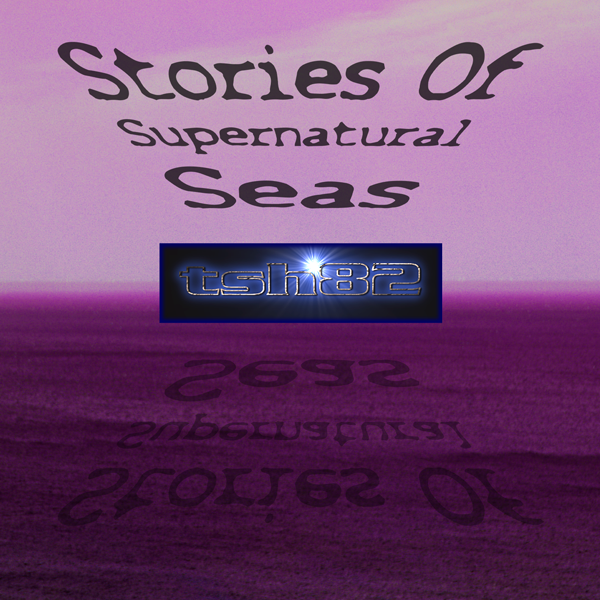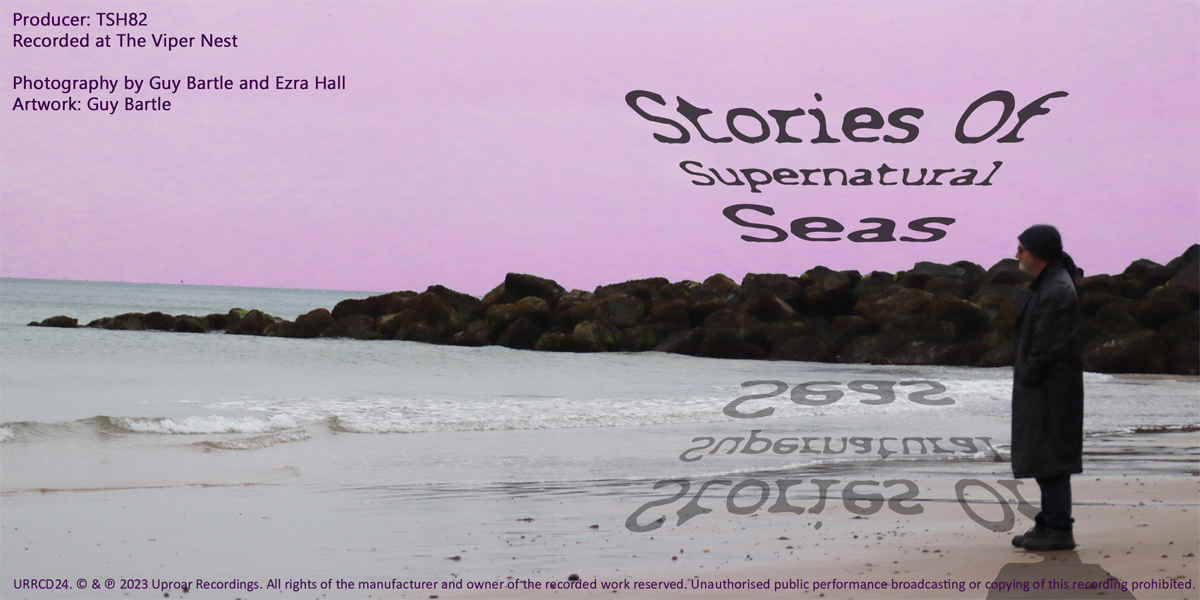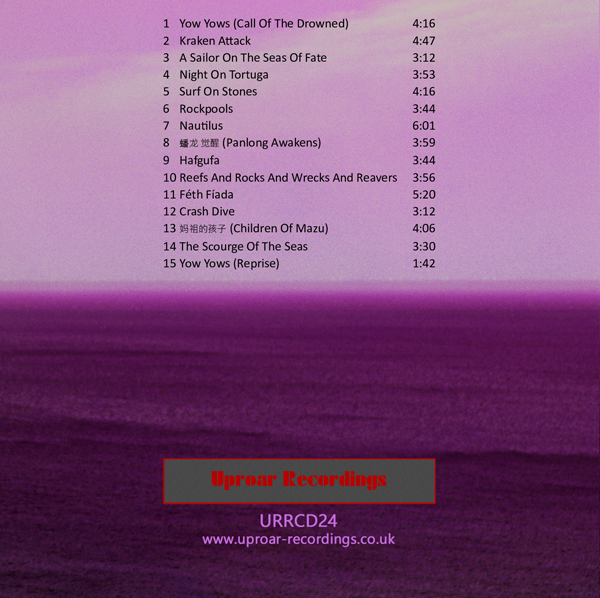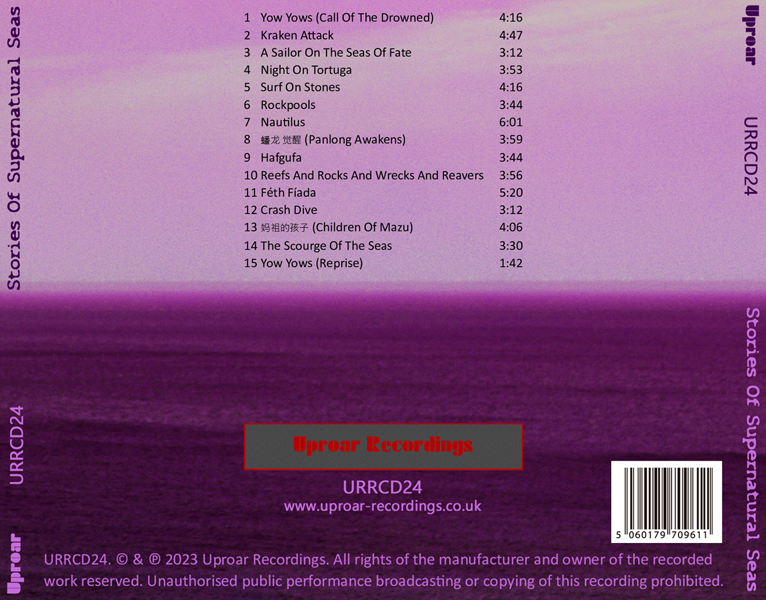'Stories Of Supernatural Seas' by TSH82




TSH82's album consists of electronic instrumental tracks exhibiting a wide variety of styles and influences, and is themed around nautical tales and myths from all over the world. From vast, sweeping sonic soundscapes on a cinematic scale through intimate, atmospheric stories in sound to massive club floor-fillers, this fascinatingly eclectic album offers something for every musical taste, touching on Electro House, Ambient, Deep House, Glitch, Trance, Dubstep, Drum & Bass, Hardcore, and spiced with style mash-ups that epitomise TSH82's unique musical flavour.
Click here to buy the CD (opens in new tab)
Click here to buy the album as an mp3 download (opens in new tab)
Track Listing
Yow Yows (Call Of The Drowned)
Kraken Attack
A Sailor On The Seas Of Fate
Night On Tortuga
Surf On Stones
Rockpools
Nautilus
蟠龙 觉醒 (Panlong Awakens)
Hafgufa
Reefs And Rocks And Wrecks And Reavers
Féth Fíada
Crash Dive
妈祖的孩子 (Children Of Mazu)
The Scourge Of The Seas
Yow Yows (Reprise)
Yow Yows (Call Of The Drowned)
The Yow Yows are a phenomenon in the folklore of the seaside town of Sheringham on the north coast of the county of Norfolk in the UK. It is said that sometimes, those who are standing on the beach on a calm day will hear cries for help from out at sea. Anyone foolish enough to attempt a rescue will find those cries keep moving as their boat heads for them, eventually leading the potential rescuer in to one of the sudden squalls which occur on that part of the coast and a watery doom…
There are differing origin stories for the tale. One is that the Yow Yows are the Captain (or whole crew) of a merchantman that was foundering off Sheringham. Rather than respond to their desperate calls for help and put out to effect a rescue, the callous fishermen of Sheringham stayed safely ashore, preferring to claim the salvage rights over the flotsam and jetsam that would wash ashore after she broke up.
An alternative has it that the Yow Yows are the souls of twelve seafarers whose drowned bodies were washed ashore after a storm. Rather than being laid to rest in hallowed ground, the corpses were dumped in a ditch without ceremony and covered with stones from the beach. A second part of this tale says that on dark and stormy nights, anyone walking the cliffs near the where the deed was done will hear the sound of twelve pebbles falling regularly, one after the other, on to a larger stone. While not particularly terrifying in itself, hearing the sound is a portent of one's own imminent death.
The Kraken is a sea monster said to appear off the coast of Norway. Described as an octopus of such vast size that it could drag entire ships down, the legend may have originated in genuine sightings of giant squid, which can grow to up to 50 feet in length.
The title is a nod to Michael Moorcock's tragic antihero, Elric of Melniboné. Moorcock's second Elric novel (chronologically, the third) is entitled The Sailor On The Seas Of Fate.
Tortuga is an island off the north coast of the larger island of Hispaniola, and is a part of the modern country of Haiti. During the Golden Age of Piracy it was a haven for a group of buccaneers who referred to themselves as the Brethren Of The Coast. Romanticised versions of Tortuga in that era have appeared in many pirate-themed films and works of literature set in the Caribbean.
The Nautilus referred to here is the submarine commanded by the enigmatic Captain Nemo in Jules Verne's novel Twenty Thousand Leagues Under The Seas.
Panlong is a sea dragon in Chinese mythology. It is an ancient motif in Chinese art, and is also used as a proper name.
Hafgufa is derived from an Old Norse word meaning 'sea-reek', or 'sea-steamer'. It is an Icelandic sea monster said to inhabit the Greenland Sea and the waters south towards Helluland. According to the 13th century origin story, the Hafgufa used its own vomit to bait and catch fish as its prey. This in turn may derive from a specialised feeding technique among whales known as trap-feeding.
Reefs And Rocks And Wrecks And Reavers
Originally used as a term to refer to a border raider or cattle thief, at sea the word 'reaver' was used as a synonym for a pirate.
In Irish mythology, Féth Fíada is a magical sea mist used by the Tuatha Dé Danann (a supernatural race of godlike beings) to envelop themselves, thus becoming invisible to the sight of mortals.
Mazu is a benevolent Chinese sea goddess. She is the deification of a 10th century shaman from Fujian province and is popular on the island of Taiwan.

